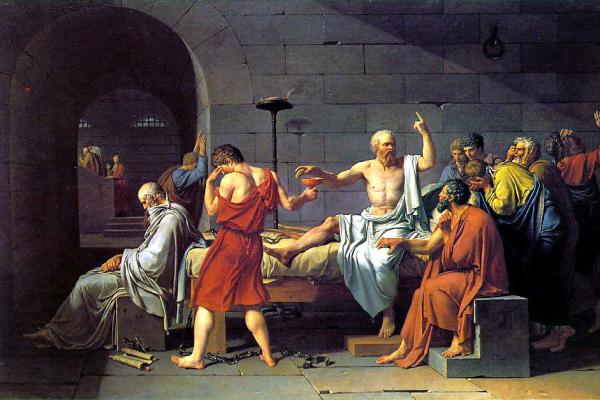
PLATO IN THE HISTORY OF PRISON
Marcus Folch
Columbia University
Wednesday April 12, 12-1.30, Dulles Hall 168
(Box lunches will be provided)
The Platonic corpus is rightly regarded as the single most important source for the study of the prison in classical Athens. Plato set several dialogues in and in the vicinity of the Athenian prison, and his account of the trial and execution of Socrates, Athens’ most famous prisoner, soon became paradigmatic, offering later authors a conceptual framework for representing, for instance, the trials of political dissenters in the Roman empire and the persecution of martyrs in early Christian hagiography. This essay, part of a larger study of the emergence of prisons in the ancient Mediterranean, focuses on one Platonic dialogue, the Republic, which, despite its status as a founding text in the history of political philosophy, has remained largely overlooked in recent literature on premodern prisons. Plato has a lot to say about the prison in the Republic. But reconstructing the place of the Republic in the history of the prison, this essay argues, necessitates numerous theoretical and evidential shifts; it demands, in particular, treating the analysis of premodern prisons not as a branch in the study of ancient criminal law, as historians of antiquity have done since at least the nineteenth century, but as part of political history. Plato’s contribution in the Republic to the historiography of premodern prisons is as a reminder that prison is, if not outside law, then neither entirely contained within or controlled by it; prison is, rather, a spatial technology that outlasts and defies the normative legal structures with which humans seek to govern their built and political environments.
Contact: Prof. Ying Zhang (zhang.1889@osu.edu)
